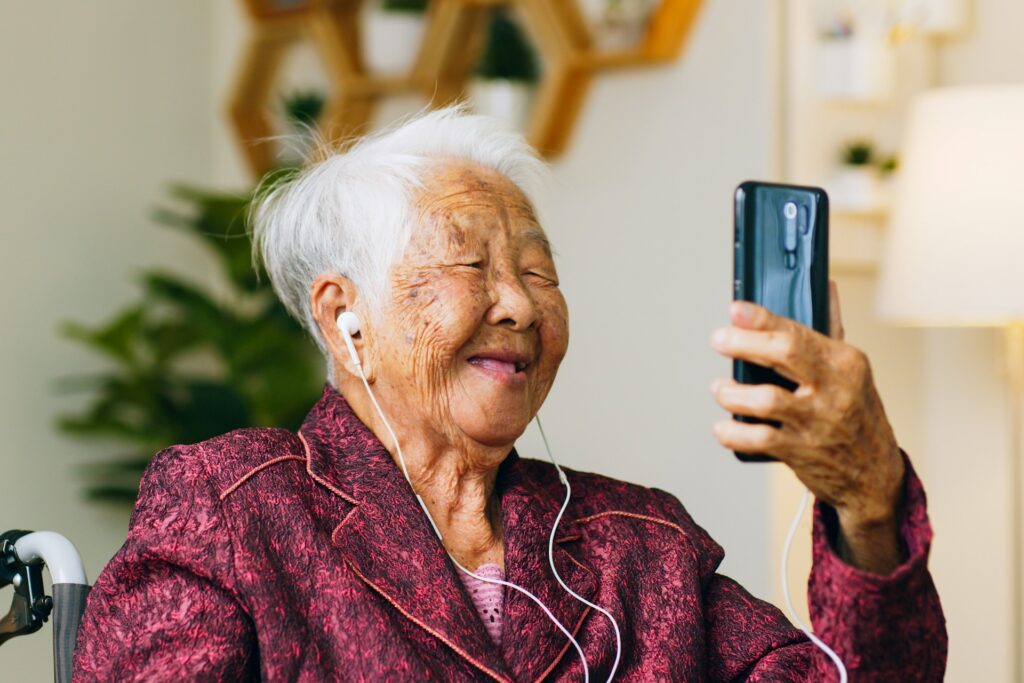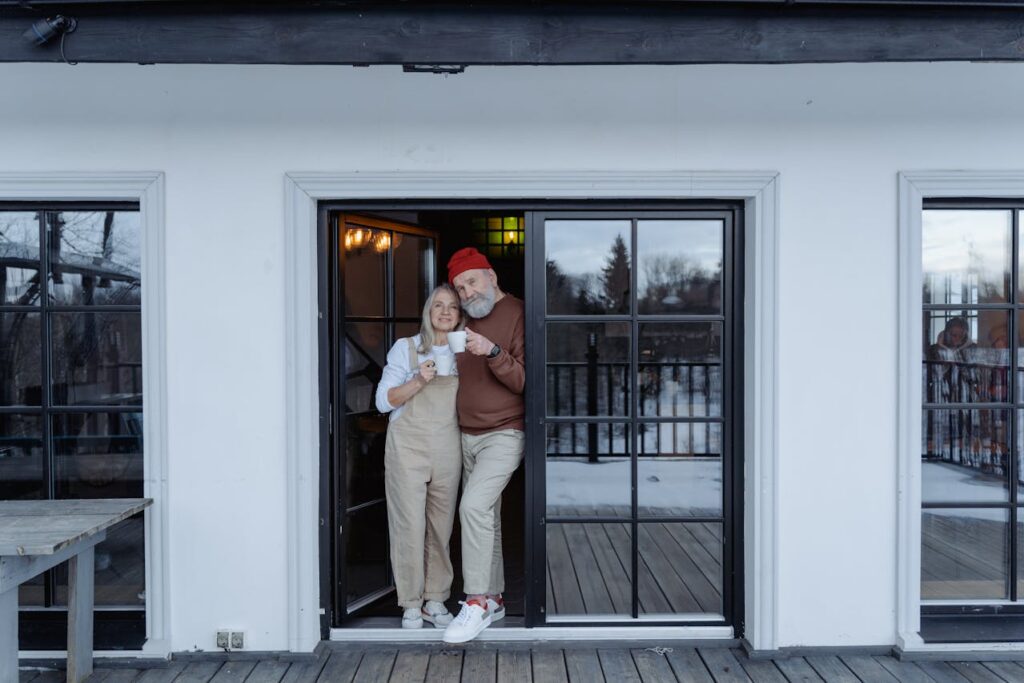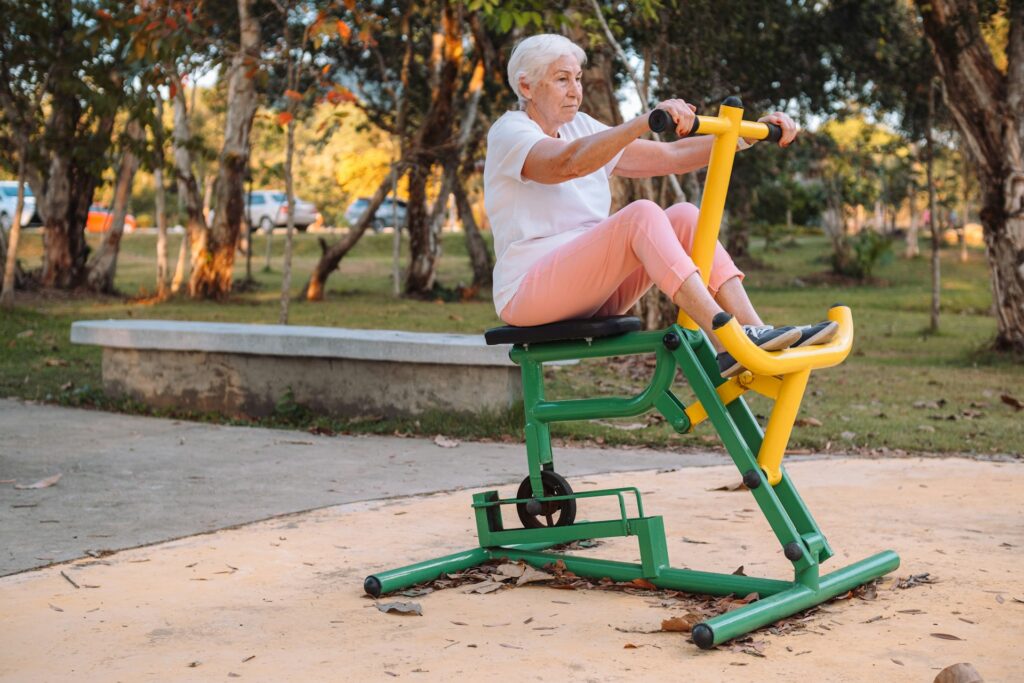To alter a well-worn phrase ever so slightly; nothing in this world can be said to be certain, except death, taxes and ageing. Indeed, getting older – in terms of accumulated years and their effect on your body – is inevitable and takes no prisoners, irrespective of wealth and status.
But these golden years needn’t be spent in a hopeless, defeatist march towards the end. Despite the fact that isolation and loneliness are increasing amongst the elderly, and sometimes giving up employment can leave retirees feeling bereft of motivation, there are steps you can take to make those final years full of purpose and, whisper it, even fun. With that in mind, here are 7 steps to helping elders live a more meaningful retirement.
An Engaged Social Life
It’s been called the UK’s ‘silent epidemic’ and is an issue which doesn’t only afflict this country. Indeed, with so much interaction now occurring online, and with the world developing at a pace which leaves many behind, the elderly can sometimes be prone to loneliness and depression in the modern age.
The key to counteracting this is to encourage and facilitate as active a social life as possible in this ‘at risk’ age group. There really is no replacement for regular, face-to-face visits if an elderly loved one lives alone.
That said, that can sometimes be tough, but regular (ideally, daily) phone calls for lively or loving discussion is the next best thing. Should making phone calls is tough – due to dexterity or mobility reasons – you might want to think about buying smart home hub device, such as Apple’s Siri or Amazon’s Alexa for your elderly loved one; the hands free nature, as well as simplicity of use, can be really useful for those elderly people who struggle with mobility or cognitive function.


Easy & Comfortable Living
For many retirees, their galavanting days are mostly behind them—all the power to those that are still trotting the globe. But the likelihood is that very few will decide to do much moving around after retirement, either moving out to their dream home, staying put, or moving into a retirement home. All the options are a perfectly valid form of living.
However, since this will be their forever home, it is important to ensure they are completely happy and satisfied in their home with access to all of their needs and all of life’s luxuries.
If you’re in your golden years, make sure you are within comfortable walking distance to all of your amenities, easy access around your own home with as many accessibility options and support.
Also, as previously mentioned, engaged social life is a big priority. This means being near and around loved ones and friends in order to socialise. For those that are thinking of assisted living, moving to a retirement home, you want somewhere where all these needs are taken care of with ease.

One increasingly popular option worth considering is park bungalow communities, which offer purpose-built, single-storey homes designed specifically for those over 45. These developments, such as those created by Regency Living, provide homes that are energy-efficient and low-maintenance, while fostering a strong sense of community through shared spaces and organised activities. Located in appealing areas near coastlines, countryside, or historic towns, park bungalows strike an ideal balance between independent living and neighbourly support, making them an attractive alternative for those who want to downsize without sacrificing comfort or companionship.
Pursuing Hobbies & Lifelong Learning
Retirement presents the perfect opportunity to explore interests that working life may have pushed aside. Whether it’s finally learning to play the piano, taking up watercolour painting, joining a book club, or enrolling in free online courses through platforms like the Open University, engaging the mind in new pursuits provides immense satisfaction and cognitive benefits.
Many community colleges offer discounted or free courses specifically for seniors, covering everything from local history to digital skills. Learning new technologies can be particularly empowering, helping older adults stay connected and engaged with the modern world. Creative pursuits like writing memoirs, genealogy research, or photography not only provide personal fulfillment but can also leave meaningful legacies for future generations.
The key is to start small and choose activities that genuinely spark interest rather than obligation. Whether it’s joining a local gardening club, volunteering for a cause close to the heart, or simply dedicating time to reading all those books that have been waiting on the shelf, having projects and goals gives structure and purpose to retirement days. These activities also provide natural opportunities for social connection, as many hobbies lead to meeting like-minded individuals who share similar passions.


Daily Assistance
Our seniors will likely need a helping hand in carrying out their day-to-day activities, and acknowledging this certainly isn’t an affront to their independence. In fact, any offers of assistance will be greatly appreciated.
This is particularly pertinent in terms of medical need. As people age, medication and doctor’s appointments become part of daily life in a much more pronounced way. And counterintuitively, it’s also a time when remembering all these appointments gets tougher. Things can get misplaced, misconstrued or forgotten about, as a collective result of worsening memory, eyesight and increased distraction.
Do your best, then, to get involved; initiate an active role in booking GP’s appointments, and be on hand to interpret instructions from their doctor, to reassure and clarify confusing information wherever possible. Invest in a pillbox so the medication doesn’t get mixed up, and label each one carefully should there be a risk of items getting mixed up.
If you are not readily available to help first hand with the regularity you’d like, you can hire help. A carer will be experienced in helping elders with a lightness of touch and respect so needed during these latter years. Though hiring represents quite the expense to many, it plays an essential role in ensuring that seniors remain safe and sane after retirement.
Financial Help
The image of a retiree settling back into beach-based retirement with pina colada in hand and nothing to worry about doesn’t really ring true anymore. Indeed, financial concerns can commonly plague the golden years.
It’s advisable to have an open dialogue about financial matters to ensure there’s no burden weighing heavy on your elderly loved ones during this time. If you’re able to, lending financial help will make adjusting to retirement a more stress free experience.
Regular Physical Activity
Just because mobility in old age is often reduced doesn’t mean that exercise should be neglected. Indeed, seniors benefit hugely from regular exercise, serving to keep not only the body fit but also the mind active. Some of the myriad benefits of exercise for the elderly include an improved immune system, stronger bones and balance, and reduced risk of age related health issues.
We’re not suggesting a regular marathon or joining the local five-a-side footy team, but a routine raising of the heart rate can do the world of good here. A brisk walk, a regular swim, stationary cycling (on an exercise bike) or gentle martial art participation – such as Tai Chi – can work wonders. It also grants a sense of purpose often lacking in retirement, particularly if there’s a participatory or involves a goal-orientated element.


A Balanced Diet
A recent report by the World Health Organisation has suggested that many seniors are at increased risk of disease because they do not observe a healthy, balanced diet. Indeed, with decreased dexterity and mental faculties, whipping up a dinner from scratch, containing the requisite carbohydrates, proteins, fruits, and vegetables, can be tough.
Here’s where you can play your part; cook a round of nourishing delicious meals to be kept in the freezer; snag an exclusive home delivery slot from a local supermarket and order lots of fresh produce; or, stock up your elderly loved one’s fridge with top quality, homecooked ready meals, of which there are now brands who cater specifically to ‘mature tastes’. All of this will provide an incentive for a cleaner, healthier eating and also hopefully bring more meaning to the daily routines by making mealtimes more enjoyable.
The Bottom Line
Everyone deserves to live a happy and healthy existence after retirement. If you have a retired relative, there are many things you can do to ensure that they are enjoying a rich and meaningful life.





